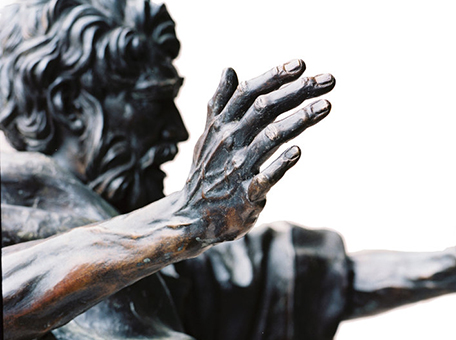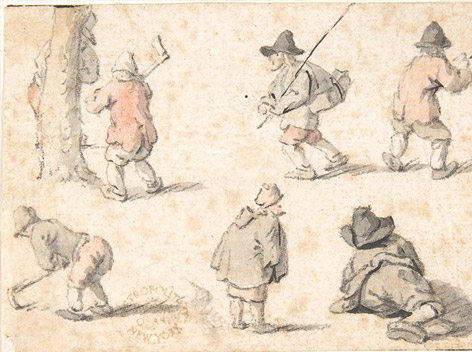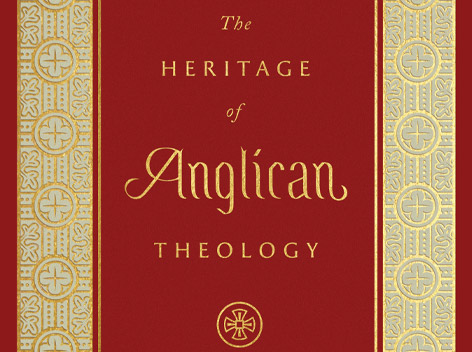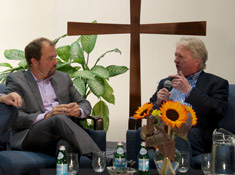Vocation from Union with Christ: Overcoming Dualisms in the Calling of the Church
The core of vocation is to be human and thus bearers of the image of a triune God, which means our vocation is to be persons since God is three persons in one. Our human personhood may not be exactly the same as God’s, since the concept of “person” in the Godhead is not univocal (having exactly the same meaning) with human personhood. It is analogous, however. Jesus, as the divine person who became fully human as a person, is the analogy. Christ is our justification for calling ourselves persons. So personhood— our remarkable and irreducible identity—matters, and our vocation is wrapped up in it However, “person” does not mean the same as “individual.” So a theological approach to calling does not begin with individuals. Just as God is not three individuals (which is the heresy of tritheism) but three persons-in-communion, so human personhood has no meaning in Christian thought apart from our being persons-in-relation with God and our fellow human. So, when it comes to understanding personal vocation, we must begin with the vocation of the community, that is, the church. The church’s vocation frames the meaning and context of each person’s vocation. More…

Peter, the Pandemic, and Pearls: How Difficulty May Be Harnessed for Discipleship
As the pandemic has swelled to overtake and disrupt so much of our lives, one overlooked aspect of the New Testament has come into sharper focus: that much of the New Testament was written in direct response to situations of hardship in one form or another. It is thanks to ethnic and relational tensions in churches that we have Galatians, Philippians, 1 Corinthians, and 1 John. Likewise, had it not been for a major famine threatening the Jerusalem church, we would not have Paul’s teaching on giving in 2 Corinthians. Difficulties generated by poverty and injustice within churches catalyzed much of the epistle of James and Paul’s teaching on the Lord’s supper in 1 Corinthians 11. We may not have had the Gospels had Christians not experienced the strain of Jesus’s absence and the loss of those who knew and saw him. And we would not have 1 Thessalonians, Hebrews, 1 Peter, or Revelation had early Christians not experienced social ostracism and its attendant hardships. More…

The Mission of the Church Rooted in Trinitarian Empathy
Our public square has become increasingly polarized. There is a lack of spaces for dialogue, and the advent of social media —with its immediacy, superficiality and aggression—has led to a decrease in our ability to hold several views in tension and a depletion of social discernment to recognize a much more complex reality than simple soundbites coming from the left or the right. Political leaders gain political dividends by surfing this wave of polarization and simplification, inflaming public debates, and promoting “hate speech” without consideration of social cohesion. Some religious leaders also approach complex issues with similar strategies. This aggressive and simplified approach to reality models (and it seems to somewhat validate) our own attitude of distaste towards those who do not share our social ghetto. More…
Volume 32, Number 2, Fall 2020

Quintessential Christian Humanist
As tributes to J. I. Packer have arisen from all over the world, people clearly remember him for many different things, demonstrating both the breadth of his scholarship and the profound personal impact he made on so many. As a theologian who now holds the Theology Chair named after him, I suggest that we should remember Packer as a Christian humanist. More…

Retrieval for the Sake of Renewal
On his eightieth birthday, I described Jim Packer as the Robin Hood of evangelicalism, stealing from the rich and giving to the poor. I invited the audience, with him present, to imagine him in Lincoln green and stockings with a long bow. I think I saw a wry smile from him in response. More…

Anglicanism is a Pastoral Form of Christianity
Everybody acknowledges that Anglicanism is a pastoral form of Christianity. It took shape in a pastoral situation where England was already divided into something like ten thousand parishes, as they were and are called—local geographical areas, each with its own church and priest. That arrangement was in place before the Reformation began. And the Reformers were thinking of ministry in the parishes at every stage in their reforming work. More…

